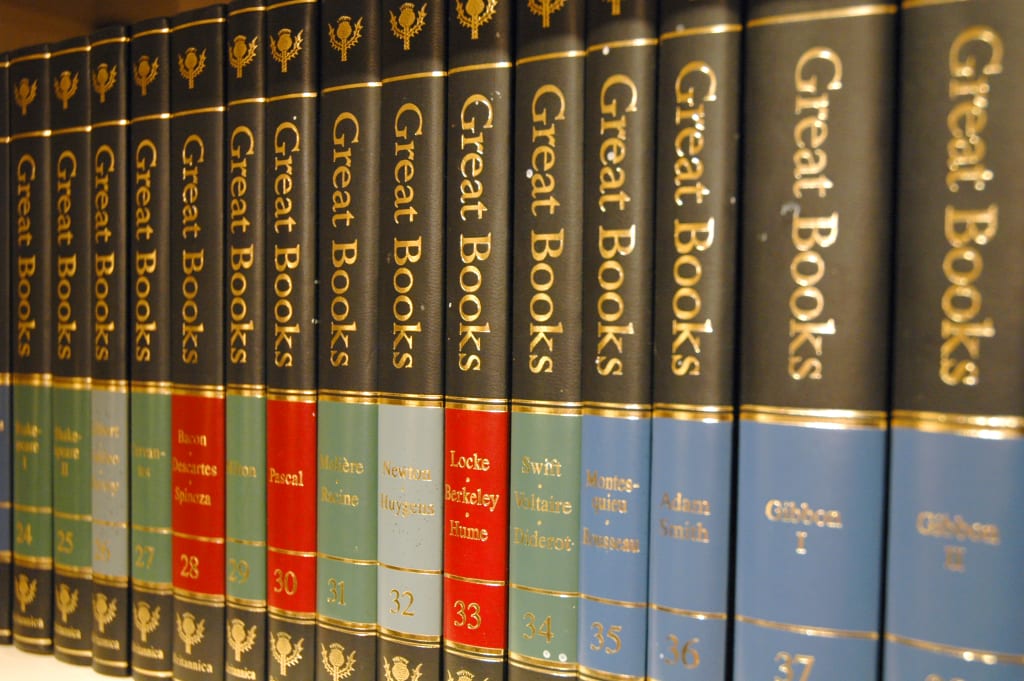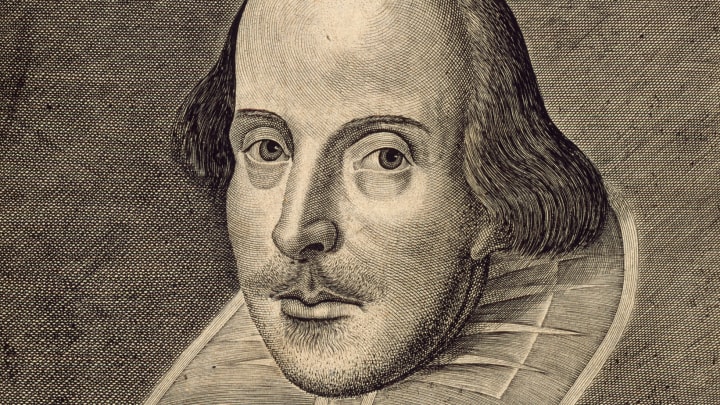30 Books to Read Before You Die (Pt. 2)
Part 2: Numbers 31-60

Hopefully, you've been following along with this series and have read Part 1 already. These lists are not about reading everything and anything but reading the best that literature has to offer. It's about exploring new and different genres, whilst also becoming more aware of different writers, different countries, and different literary movements.
I will repeat myself in this post because I want to tell you how glad I am that I get book recommendations from different people. Many people recommend me books from different cultures and I love reading them because they're always so damn interesting. There are different writing styles, the different translations out there and yet, there is so much more to explore than just that.
I am grateful to everyone that recommends me a book to read because I will do whatever I can to make sure I read them, especially when it comes from a culture I am not familiar with. For example: I have read some Portuguese literature, but not much—so a friend of mine who I know online helps me out with finding the best Portuguese literature has to offer. I am so excited to read more of it that I have another book on the way very soon.
I will also like to reiterate that every single book I post on here is a book I have read. It is not a list that is copied from anywhere or inspired by other lists; my lists of books always come straight from the heart. These are books I hold very close to me and that have meant a lot to me in my reading journey. If you would like to talk about books with me, then you need not hesitate because my social media handles are in my bio at the end of the article. Just come along and we can have a nice little discussion!
So, without further introduction let us get on to part 2 of the series of posts. Numbers 31 through to 60. Remember those with a (*) next to them are my personal favourites and I will explain why some are on the list sporadically throughout the article.
31-40

31. The Town and the City by Jack Kerouac*
32. The Wise Woman by Philippa Gregory*
33. Huckleberry Finn by Mark Twain*
I loved this book when I was younger and I still love it now. The ultimate adventure novel, it has all the elements a young child would love about a book. It has a child narrator, it has jokes and when you grow up and read it again, it also has a very dark element to it. For example: there is something quite dark about the way in which Huckleberry Finn's father treats him and how everyone seems to treat Jim. It's a book for all ages, not just for younger people!
34. Notes from Underground by Fyodor Dostoevsky
35. A Bend in the River by V.S Naipaul*
36. Heart of Darkness by Joseph Conrad*
If you ever read this then you have really accomplished something. It's a brilliant story about a dark journey up the Belgian Congo where Marlow is due to meet an ivory merchant named Mr. Kurtz. I read this book quite a while ago and yet, I still can't get over the heads on sticks. Oh my god this book does exactly what is states it'll do—it is the literal heart of darkness.
37. Les Miserables by Victor Hugo*
38. A Diamond as Big as the Ritz by F. Scott Fitzgerald*
I freaking loved this. I actually found this by accident on a shelf, it was all tattered and abandoned but I read it anyway. I loved the darkness of the story and the way the metaphor of having lots of money doesn't equal happiness is played out. My favourite scene is when Mr. Washington goes to the mountain to pray when his world is literally crashing around him. It's one of the most brilliantly dark and disturbing things ever to be written and surpasses The Great Gatsby in literary achievement.
39. The Brothers by Masha Gessen*
I've read this book many times and I can honestly say that there hasn't been a non-fiction novel this good since Truman Capote wrote In Cold Blood. You have probably also heard me say that this is In Cold Blood for our generation. Get ready for a biography of The Boston Bombers as you've never heard before; no sympathy, no fiction—but all research, evidence and brutality.
40. In Cold Blood by Truman Capote*
41-50

41. To Kill a Mockingbird by Harper Lee
42. The Prince by Niccolo Machiavelli*
I have written many essays incorporating this piece of brilliant political philosophy. It is quite possibly one of the most eye-opening things you'll ever read because it goes through exactly what a leader requires to gain and maintain power. My favourite chapter is probably Chapter 18, purely because it is the most controversial. It really makes you question the motive of every single leader ever.
43. Dr. Faustus by Christopher Marlowe*
44. The Jew of Malta by Christopher Marlowe*
45. Edward II by Christopher Marlowe*
46. Either/Or by Soren Kierkegaard*
This is quite possibly one of the most incredible and the most confusing philosophy books I've ever read. It's a brilliant account of the rule that if you're going to do something then the results don't fully matter in circumstance. The main thing is, you'll die either way and there's literally nothing you can do about it. Kierkegaard works with the "yes or no" and the "either and or"—looking at why we make certain decisions and where they lead us. There's a really good part in the middle of the book where he goes on about the either/or concept in a running narrative and even though you find it quite funny, it's also horrifyingly true.
47. Fear and Trembling by Soren Kierkegaard*
48. Hamlet by William Shakespeare*
49. Richard II by William Shakespeare*
Not many people actually read this, but when or if you're trying to get into Shakespeare, this is probably the easiest play to read. It is a brilliant fusion of tragedy and power politics. The way it tells the turbulent story of the final year of Richard II's reign is absolutely beautiful. I personally will say that Act 4, Scene 1 is one of the most iconic Shakespearean scenes in all of history. I actually teach this as one of the first Shakespeare plays my students learn because of the reason that it's simple and linear. The characters are deep and interesting, all in want of power—no matter how personal their cause.
50. Julius Caesar by William Shakespeare*
I used to teach this play and I taught it alongside Hamlet because of the way tragedy and power plays out. In Julius Caesar everyone wants power, but they disguise it in the "good of the state." But in Hamlet, it is a very personal thing and has very little to do with power at all for the protagonist. The one thing I like about Julius Caesar is the way in which Act 3 builds the entire play to a climactic point. It is a brilliant play to read and an amazing one to study. I hope you have a ton of fun with this one.
51-60

51. Richard III by William Shakespeare*
52. The Merchant of Venice by William Shakespeare
53. The Decameron by Giovanni Boccaccio*
This book is one that I read for my undergraduate dissertation and well, I'm not going to lie, but it was amazing. It's about a group of people trying to get away from the plague and they begin to tell each other stories. Yes, The Canterbury Tales copied the structure and netted narrative form of this text. But, if you're not totally convinced then you only need to read the apocalyptic description of the plague in the first few pages of the book because damn, does it get really dark in there.
54. The Jungle by Upton Sinclair*
I'm not going to say very much other than the fact that after I read this book I became a vegetarian for around three weeks. I couldn't even look at meat properly. You have to have a strong stomach for this one, so make sure you're up for it.
55. Their Eyes Were Watching God by Zora Neale Hurston
56. All the Pretty Horses by Cormac McCarthy*
57. Invitation to a Beheading by Vladimir Nabokov*
I found this book so much better than Lolita because of the way the book is written. You find things out piece by piece and you only find out what Nabokov wants you to know. After which, there's an ending so damn confusing that you don't really feel like the book has ended. It's like you're left expecting something else, whether it be a different ending or more writing. But you don't get it. Instead, you get an ending that leaves you thinking and thinking and thinking about the book for ages. And at the end of the day, that's what writing a book is about.
58. At Swim-Two-Birds by Flann O'Brien
59. The Talented Mr. Ripley by Patricia Highsmith*
I was so young when I read this book that I hadn't even heard of the film then. Even though I loved the movie, the book seemed more noir, darker and far deeper in the reasoning and character of Tom Ripley. I felt like there was so much more to the character and the character was just more like a psychopath than a doomed outsider like he is in the film. There was so much that the film missed, even though I did enjoy it—I felt like the book was just a lot darker. It was a lot darker.
60. Middlemarch by George Eliot*
About the Creator
Annie Kapur
200K+ Reads on Vocal.
English Lecturer
🎓Literature & Writing (B.A)
🎓Film & Writing (M.A)
🎓Secondary English Education (PgDipEd) (QTS)
📍Birmingham, UK






Comments
There are no comments for this story
Be the first to respond and start the conversation.